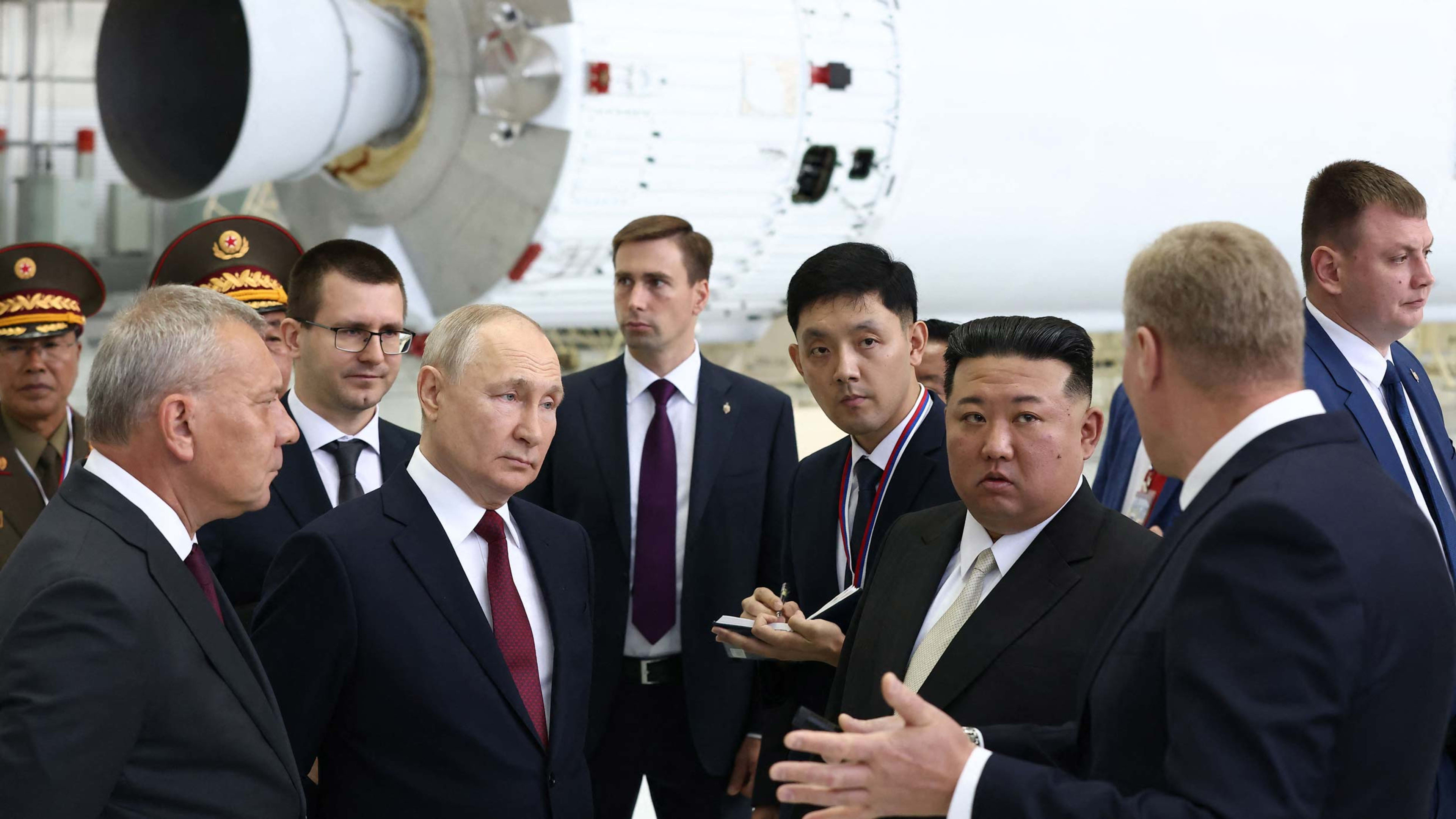Kim Jong Un met with Russian president Vladimir Putin at Russia’s Vostochny Cosmodrome space center this week, marking the first meeting between the leaders in four years. Against the backdrop of the Russian launch facility, the pair discussed providing support for Kim’s satellite program and the possibility of sending the first North Korean to space.
After Kim arrived in eastern Russia via armored train, the two leaders kicked off their five-hour meeting, which included exploring the Angara rocket manufacturing facility and the Soyuz-2 engineering building.
During the tour, Kim reportedly took immense interest in Moscow’s rocket program, asking for details about the size of rockets that could launch from Vostochny, which is intended to provide redundancy for Russia’s launch range at Baikonur in Kazakhstan. The two leaders also discussed sending a North Korean cosmonaut to space.
When reporters asked if Moscow would support Pyongyang’s satellite program, Putin said, “This is why we are visiting here. The North Korean leader has expressed a strong interest in rocket technology, and they are also seeking to develop space exploration capabilities.”
Space hermit
North Korea has twice attempted and twice failed to launch a recon satellite to space this year. While the leaders did not share specifics on the proposed partnership, the Kremlin could transfer rocket know-how, satellite tech, or provide transport to space—all of which would be a significant violation of sanctions and provoke further anger from the international community.
Russia’s space program has been feeling the pain of Western sanctions that have led to international partners abandoning Moscow launch vehicles.
- South Korea terminated a years-long launch relationship earlier this year due to the untenable situation.
- “Probably, some of our foreign partners may be afraid of the emergence of so-called secondary sanctions from the EU countries because of business ties with us,” said Khrunichev Center chief Alexey Varochko.
A potential partnership with North Korea would represent a strengthening of military, economic, and geopolitical interests between the two ostracized countries.
U.S. eyes in the skies
With North Korea venturing into military satellites and building up its arsenal of ballistic missiles, the U.S. is investing heavily in its SDA national missile defense constellation. The satellites will be used to help detect and track potential North Korean and Russian missile threats.
This story originally appeared on Payload and is republished here with permission.
Recognize your brand’s excellence by applying to this year’s Brands That Matter Awards before the early-rate deadline, May 3.
